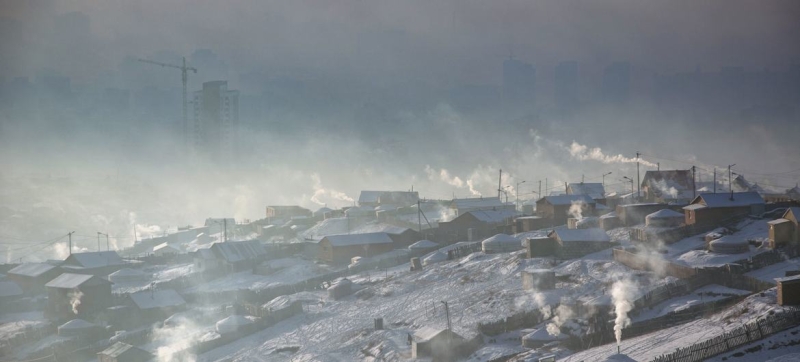
Air pollution in Ulaanbaatar, Mongolia. WMO: Air pollution causes over 4.5 million premature deaths a year Climate and environment
Almost everyone on Earth – nine out of 10 people – breathe air that is essentially unfit for breathing, with air pollution causing millions of deaths each year, the UN World Meteorological Organization (WMO) said ahead of Clean Air Day for blue skies on September 7.
“This means the air exceeds World Health Organization (WHO) limits and contains high levels of pollutants, with low- and middle-income countries being hit hardest,” explained WMO researcher Lorenzo Labrador.
Environmental health risks
The findings are presented in a new WMO report on air quality and climate, which also highlights that in the first eight months of 2024, persistent heatwaves and droughts around the world have increased the risks of wildfires and further air pollution.
Read also:
UN chief calls for urgent action to protect people from extreme heat
According to the WHO, there is a clear link between polluted air and poor health. The organization called for global action to combat this grave environmental health risk and the spread of numerous preventable diseases, including stroke, heart disease, lung cancer and acute respiratory diseases such as asthma.
“Ambient air pollution alone, mainly from transport and industry, is responsible for more than 4.5 million premature deaths a year,” a WMO spokesman told reporters in Geneva.
“That’s more than the number of deaths from malaria and HIV/AIDS combined, making air pollution the single greatest environmental risk of our time,” he added. In addition to harming human health, it also exacerbates climate change, Labrador said.
Human Activity
The WMO report points to lower pollution rates in Europe and China compared with North America and India, where pollutant emissions from human and industrial activity have increased.
It is widely known that polluted air containing microscopic particles such as sulfates, nitrates, ammonia, as well as soot from human activities and forest fires, is harmful to health. Labrador also reiterated WMO findings from last year that these and other pollutants are having a devastating impact on food security.
“Particulate matter in the air can seriously affect the yield of agricultural crops such as corn, rice and wheat,” a WMO official said.
Particulate matter pollution is often caused by human activities, such as land management practices such as tillage and harvesting, fertilization and burning of crop residues, he said.
Acknowledge the problem
New data also showed that the wildfires that engulfed Canada in 2023 were even larger in emissions than the very severe Siberian fires in 2021, Labrador emphasized. Fires in Canada have broken 20-year records for the area burned, he added.
The WMO called on governments to protect health, the environment and the economy, including taking into account the financial impact of air pollution.
“So, cities and countries first and foremost need to recognize that there is an air quality problem. There is enough data from around the world to recognize that this is a global problem, especially in urban areas,” Labrador said.
